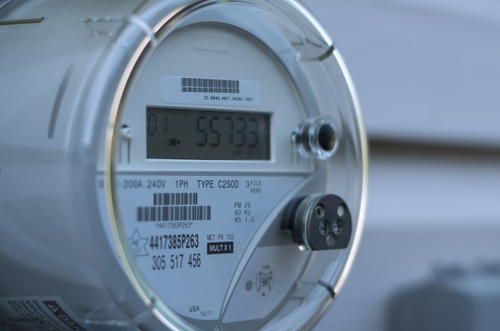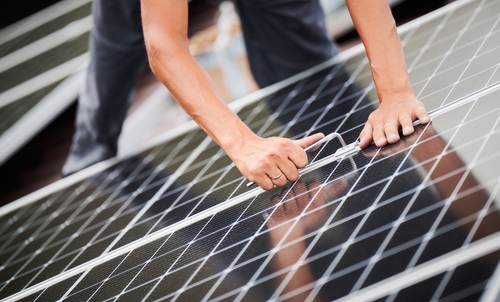
As the world moves towards sustainable energy solutions, the United States continues to encourage the adoption of renewable resources through various incentives. One such initiative is the Federal Solar Investment Tax Credit (ITC) offered by the Department of Energy. Homeowners in the United States are entitled to the solar tax credit, however, there are eligibility requirements and qualifications one must be aware of. In this blog post, we will explore what the ITC is, who and what is eligible, and how you can claim the credit on your federal taxes.
What is the Solar Investment Tax Credit (ITC)?
The Solar Federal Tax Credit, often called the Solar Tax Credit or Residential Energy Credit, is a federal incentive designed to promote the adoption of solar energy systems. Established in 2005, the ITC has played a crucial role in driving the growth of solar installations across the country. It is a dollar-for-dollar reduction in the amount of income tax you would otherwise owe.

How Does it Work?
The ITC allows eligible taxpayers to deduct a percentage of their solar system installation costs from their federal taxes. It should be noted that the solar panels do not need to be installed on the roof to collect the tax, as long as they are located on your property and generate electricity for your residence you may qualify for the tax credit. According to the Department of Energy, “in August of 2022, Congress passed an extension of the ITC, raising it to 30% for the installation of which was between 2022-2032… and expires starting in 2035 unless Congress renews it.” However, it is important to note that it is advisable to check the latest updates from the IRS or the Department of Energy (linked above) in the event of any changes.
Eligibility Criteria:
To qualify for the Federal Solar Tax Credit, you must meet the following criteria:
- Ownership: The solar system must be owned, not leased. If you lease a solar system, the leasing company typically receives the tax credit. The system can be purchased with cash or through financing.
- Installation: Your solar photovoltaic system must be installed at your primary or vacation residence between January 1, 2017, and December 31, 2034, and installed the tax year you wish to claim the credit. Sometimes, you may qualify for the credit for systems installed in a previous year. The credit can only be claimed on the original installation of the solar equipment. It should be noted that a landlord installing a solar system on a rental property, is not eligible, but if a renter installs a solar system they are eligible.
- Home Office (or Residence is Also Used for Commercial Purposes): Residence used for work or commercial purposes can complicate eligibility. However, if your investment in the solar system is primarily used for residential rather than business purposes, the credit may be claimed in full. If less than 80% of the system cost is a residential expense, only the residential percentage can be used to calculate the tax credit.
- Tax Liability: To benefit from the credit, you need to have sufficient tax liability. If your tax liability is less than the credit amount, you may be able to carry over the remaining balance to future tax years.
Pictured: EcoFlow Delta Pro Portable Power Station + Smart Generator + 400W Portable Solar Panel
Expenses Included:
- Solar photovoltaic panels or PV cells.
- Labor costs for onsite preparation, assembly, or original installation, including permit fees, inspection costs, and developer fees.
- Balance of system equipment, including wiring, inverters, and mounting equipment.
- Energy storage devices that have a capacity rating of 3kWh or greater, such as the EcoFlow Delta Pro, EcoFlow Delta Pro Ultra, or the Anker F3800 (for systems installed after December 31, 2022).
- Sales taxes on the above eligible expenses.
- Used, previously owned clean energy property may not be eligible.

Benefits of the Federal Solar Tax Credit:
- Financial Savings: The ITC can significantly reduce the upfront cost of installing solar panels and battery storage systems, making renewable energy more financially accessible.
- Promoting Sustainability: By encouraging the use of solar energy, the tax credit contributes to a cleaner environment and helps combat climate change.
- Electric Utility and State Rebates: Both rebates or subsidies offered by utility companies or your state government do not bar you from qualifying or receiving the federal tax credit. For utility company rebates, the rebate will be subtracted from your system costs before calculating the tax credit (example: $20,000 (original installation) - $1,000 (utility rebate) * .30 = $5,700). However, a rebate from your state government will not reduce your federal tax credit (for example $20,000 * .30 = $6,000).
The Federal Tax Credit is a powerful tool in the nation’s push toward renewable energy. Taking advantage of the ITC can make the initial cost of investment and the transition to solar power more affordable. Keep an eye on the expiration dates and/or changes to the tax credit, and consult with a tax professional to ensure you meet all eligibility requirements to maximize your savings. For those who prefer to do your taxes, you must fill out and submit IRS Form 5695.
At Solar Generators and Power Stations Plus, we have a range of products that may be eligible for the Federal Tax Credit explained in this blog post. For instance, the Anker SOLIX F2600 with the 760 Expansion Battery would exceed the 3 kWh minimum. In addition, we have a blog post about the EcoFlow Delta Pro ecosystem for whole-home power solutions. Just because the power station and solar panels you may decide to buy are portable, that does not mean that you won't be eligible for the Federal Tax Credit, but you should always consult a tax professional to understand the intricacies of the Federal Tax Credit. Embrace the sun and empower your future by investing in solar energy and let the Federal Solar Tax Credit brighten your path toward energy independence.









